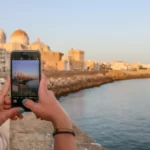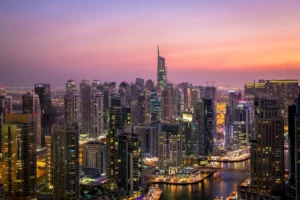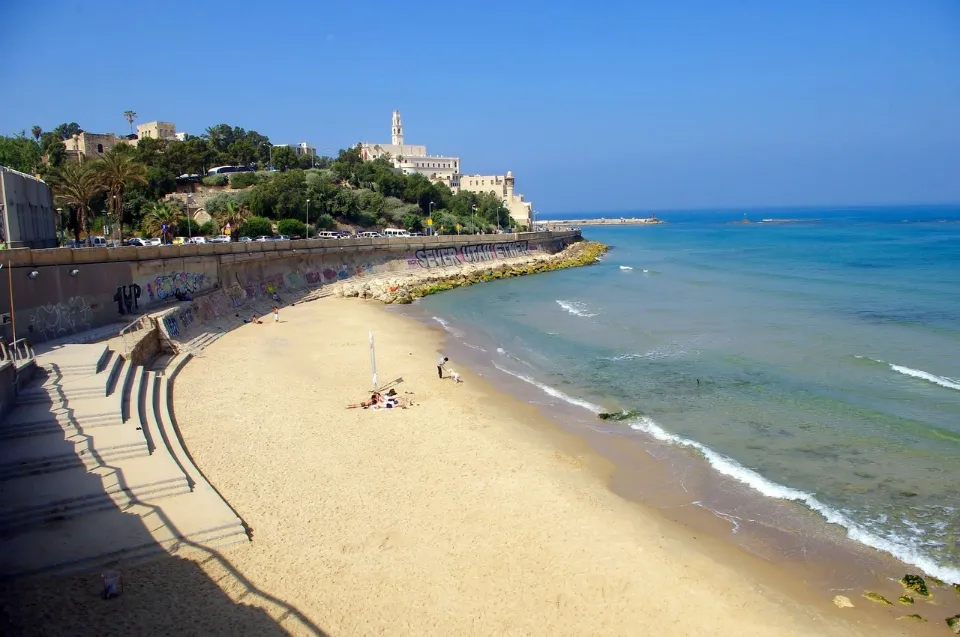
The vibrant urban cultural center of Israel is Tel Aviv. a seaside location that combines centuries of history with stylish architecture from the 1930s, vibrant nightlife, and a fantastic food scene.
Traveling to Tel Aviv from a major city anywhere in the world is very safe. Families with kids can travel safely on foot.
This comprehensive guide to Tel Aviv’s safety has been put together not to scare or deter you, but to provide you with the facts and all the information you need to have a great time in this cool city.
How Safe is Tel Aviv Really?
Israel’s security situation is unstable and tense.
Tel Aviv remains a very safe city to visit, but travelers need to be aware of the possibility and high risk of terrorist threats.
The local police are typically very cordial.
Pickpockets, like in every big city, operate at the old and new central bus stations, the beach promenade and bag and bicycle thefts are common.
In comparison to most other cities of comparable size, Tel Aviv has much lower crime rates.
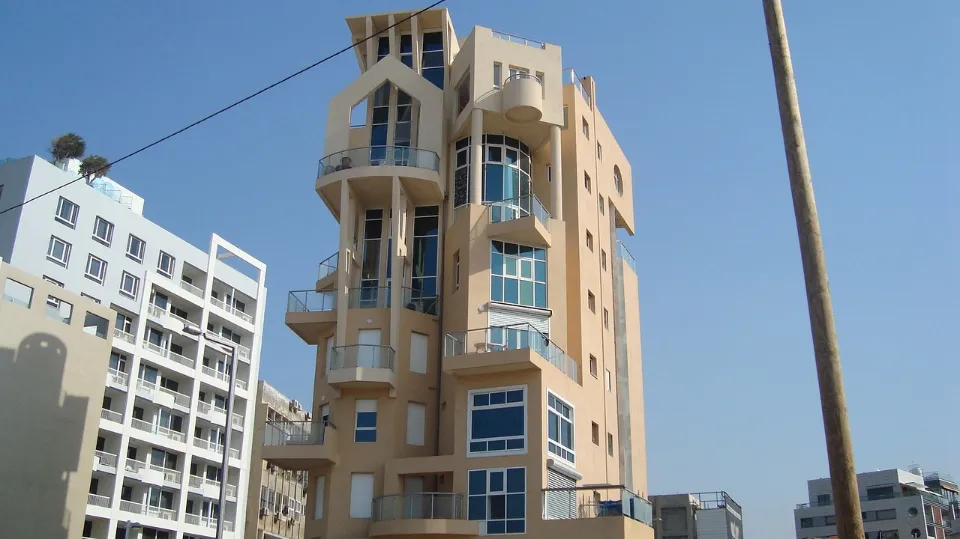
Buses are the best way to tour the city and a very safe way to travel.
Although Tel Aviv is generally free of street crime, some of the southern neighborhoods could become unsafe late at night.
In terms of serious crime, the Northern and central portions are secure, but pickpockets are common even during the day.
Because it is the nation’s financial and technological center and is highly recommended for travel, this city has excellent tourist infrastructure.
Is Tel Aviv Safe?
Tel Aviv is a popular tourist destination despite what some may believe to be its unstable geological location. Most travelers to Israel who come to see the historical sites eventually end up in Tel Aviv.
Israel relies heavily on tourism as one of their main sources of income. In 2017, the nation received 3.6 million visitors, a significant 25% increase from the year before, and the industry generated NIS 20 billion for the national economy.
Let’s fast-forward to 2019. Israel is expected to have welcomed around 4.7 million visitors, breaking the previous year’s record of 4.12 million. Despite the nation’s alleged problems, each year has seen a significant increase in tourists, setting new records.
Tel Aviv is the country’s financial and technological capital and according to the UN, also its diplomatic capital. Tel Aviv is home to 3.9 million people, or 44% of Israel’s total population.
Murders have reportedly been steadily declining, according to Israeli police statistics on crime. According to reports, there were 103 homicide victims in 2018 (1.14 per 100,000 people), which is a decrease from 2017’s 136 victims. When viewed separately from Israel’s overall statistics, Tel Aviv exhibits relatively low crime rates: use of firearms, muggings, and other violent crimes are all extremely rare.
That said, on the 2019 Global Peace Index (which measures the general safety of 163 countries) Israel ranked 146 – just below Mali (145) and just above Lebanon (147) putting it at the lower end of the “Low State of Peace” bracket.
Though it is situated in a country that may not be regarded as “safe”, Statistics show that Tel Aviv is one of the top tourist destinations in Israel and has the vibe of any Mediterranean city.
Is It Safe to Visit Tel Aviv Right Now?
Given that Israel has been at war with Hezbollah in Lebanon and Hamas in Gaza for decades, it is difficult to say whether Tel Aviv is safe at the moment.
Every so often, tensions can increase, resulting in isolated conflicts involving rockets fired across international boundaries.
There have been more tensions throughout the region as a whole. A United States. airstrike in An anti-Western sentiment spread throughout the Middle East after Baghdad killed an Iranian general.
Previous to this (November 2019), more than 60 rockets were fired from Gaza into southern Israel, with at least two being intercepted over Tel Aviv by the city’s “Iron Dome” missile defense system.
Ongoing tensions, culminating with the firing of rockets, can lead the Israeli Home Front Command to close workplaces and schools, including in Tel Aviv. For instance, this is the situation at the moment this article is being written.
The back and forth of projectile fire between Israel and Gaza can affect Tel Aviv. If an emergency situation is about to occur, warning sirens will sound.
Essentially it is a fragile situation that can change quickly.
Protests also affect Tel Aviv, and can feature violent clashes between protesters, and law enforcement. At times, passersby and tourists are also entangled in it all. Route 443, between Tel Aviv to Jerusalem also sees such incidents occur.
All of these concerns are variable; at times, tensions are high, at other times, they are low. Before you travel, it might be a good idea to check the most recent developments in the conflict in Israel and the Middle East in general.
However, for the most part, Tel Aviv and its residents maintain their composure and go about their daily lives as usual. In fact, that the city is referred to as “The Bubble” for how different it feels – and is – from the rest of the country.
Obtain a local SIM card, and enable notifications for a nearby news station, to stay informed of the situation. Another means of safety is by remaining connected.
Keeping Your Money Safe in Tel Aviv
Any traveler will worry about how to safeguard their financial assets. Whether you are worried about losing money, or having it stolen from you, it safe to say that it is an important part of travel.
In Tel Aviv, as anywhere else in the world, a money belt is a convenient way to keep your cash secure.
By wearing a money belt, you can keep your cash secure and stop worrying about it getting lost or stolen.
Some money belts, however, aren’t as good as others; we think that they can look obvious when worn under clothing, and can be pretty uncomfortable sometimes, too.
The Pacsafe Money Belt is our best bet. It’s affordable, it looks and acts like a belt, and it’s sturdy – what more could you ask for out of a money belt!
This money belt is not only functional and looks like a regular belt, but it is also strong and reasonably priced. To keep your cash secure for the day, all you need to do is stash it in the hidden zipper pocket on the belt.
Is Tel Aviv Safe to Travel Alone?
Tel Aviv is the perfect place for solo travel. Everyone in this community is approachable, kind, and willing to offer you any advice you might need.
It’s also a great place to join in with everyone else, mixing and mingling and partying till the early hours, then hanging out at a coffee shop after you’ve woken up late – just like everybody else.
Nevertheless, to help you stay safe and legal, here are some advice for solo travelers in Tel Aviv.
- You should definitely do research when it comes to accommodation. You will want to find somewhere that suits your travel type, works well for you, and is secure. Make sure you enjoy your accommodations and aren’t just booking the cheapest available accommodation by reading reviews. Abraham Hostels is a friendly place.
- Asking for help shouldn’t be a fear. The majority of people in Tel Aviv are willing and happy to assist you if you need directions, require advice, or feel unsafe. Many locals also speak excellent English.
- have a variety of ways to access your money. Due to the potential stress of losing everything at once, think about opening multiple bank accounts and keeping your credit cards in separate places. You might also find a credit card for emergencies to be of great assistance.
- Before you depart for Tel Aviv, download all of the top Israeli apps. A good place to start is Moovit, which provides information on the nation’s public transportation schedules. You can also look for emergency response apps and offline map apps like Maps.me.
- Join Facebook groups focused on specific cities, such as Secret Tel Aviv. You can meet locals here, get advice, and stay informed about events happening in the city.
- Make sure that your travel plans and plans for exploring the city aren’t affected by big public holidays like Yom Kippur, which sees the city’s public transport system shut down and virtually empty streets.
- Going off the grid is not required if you are traveling alone; in fact, doing so could be quite dangerous. Maintaining contact with loved ones back home will be beneficial for both your mental well-being and in preventing homesickness, so make sure to do so. It is good to hear a familiar voice.
- Try not to get too wasted. Even though Tel Aviv is known for being a city that parties nonstop, you don’t have to get completely wasted. By doing this, you only increase your chances of making poor decisions, getting lost, or even worse.
- Knowing that asking someone nearby to keep an eye on your belongings while you go swimming is not unusual when you are by yourself at the beach and have your things with you.
- Travel light; arriving in Tel Aviv with a ton of luggage is not only unprofessional but also won’t make it easy for you to get around or leave the city. Instead of arriving with several bags, choose to use a small, packable daypack as an example.
Tel Aviv should unquestionably be on your list if you’re a solo traveler hoping to explore the best attractions in Israel.
In fact, Israeli people are used to travelling and are used to mingling with people from other places. In addition, Tel Aviv has excellent hostels that are grouped around a fun beachfront area.
This city is a fantastic option for enjoyment and good times. Being sensible and keeping in mind that it’s not a playground where nothing bad can happen will ensure that you have a good time.
Is Tel Aviv Safe for Solo Female Travellers?
Like many cities in the world, Tel Aviv does, unfortunately, come with a handful of issues when it comes to visiting the city as a solo female traveller.
However, for the most part, Tel Aviv’s laid-back feel and free-spirited mindset make it not just a safe place for women to travel by themselves, but a very fun one at that.
We’ve put together a quick guide for female solo travelers in Tel Aviv below to help you stay extra safe.
- Keep an eye on your drink at all times and never leave it unattended. In Tel Aviv, people do spike drinks. To be safe, make sure to hold your beverage in your hand at all times. Don’t even drink from strangers.
- Avoid walking alone in isolated, dark areas at night, whether it’s a deserted beach, a short cut home, or another place of that nature. The possible risk is not worthwhile.
- It is ok to say no and be firm with it. Some men may flirt in a little too much of a direct manner. If you feel that this is unwanted attention – it is normal to be firm with how you respond. Usually, this is harmless, and more annoying than anything, but if you do feel like you are being harassed, then you should make a scene, and find someone nearby who can help you.
- Catcalling does happen occasionally, but it is best to ignore it and keep going.
- Even during the day, use caution when wandering around the city. While some neighborhoods, like Florentin, are hip and accepting, others might not be.
- Don’t divulge any personal information to strangers, including your marital status, where you are staying, your room number, where you are from, and what you plan to do tomorrow. Such information is unnecessary to share with them, and doing so could put you in danger.
- Walking with purpose and assurance that you know where you’re going (even if you don’t) is referred to as walking confidently. You may appear vulnerable if you appear to be a lost tourist.
- It will be a good idea to meet some local ladies. Your understanding of Tel Aviv’s various neighborhoods and scenes will be enhanced by their advice. Simply searching for female-focused meetups will yield results, as will joining Facebook groups like Host A Sister, which will allow to put out a request to meet up with other women wherever you are in the world.
- Taking a tour is a good idea if you’re unsure about exploring the city on your own. To be safe, only use very reputable, highly-recommended tour operators and guides; it is crucial to read reviews of any potential providers.
- Share your travel schedule with others. Send your travel plans to a close friend or family member back home, and make sure to check in on them every few days to let them know how you’re doing. You might feel more at ease if you can reduce the anxiety of others.
- Ensure that your phone is always charged. A spare battery pack that will keep your phone’s battery topped off is something you might want to buy if you plan to be out and about all day.
Female travelers traveling alone will love Tel Aviv. With music venues, art exhibitions, chilled cafes to people-watch at, and some great dining experiences, you will have no trouble filling your time with cool things to do.
Consider local meetups or staying in a hostel with a social atmosphere if you want to find like-minded people to spend your time with. You can avoid problems if you take the same safety precautions as you would anywhere else.
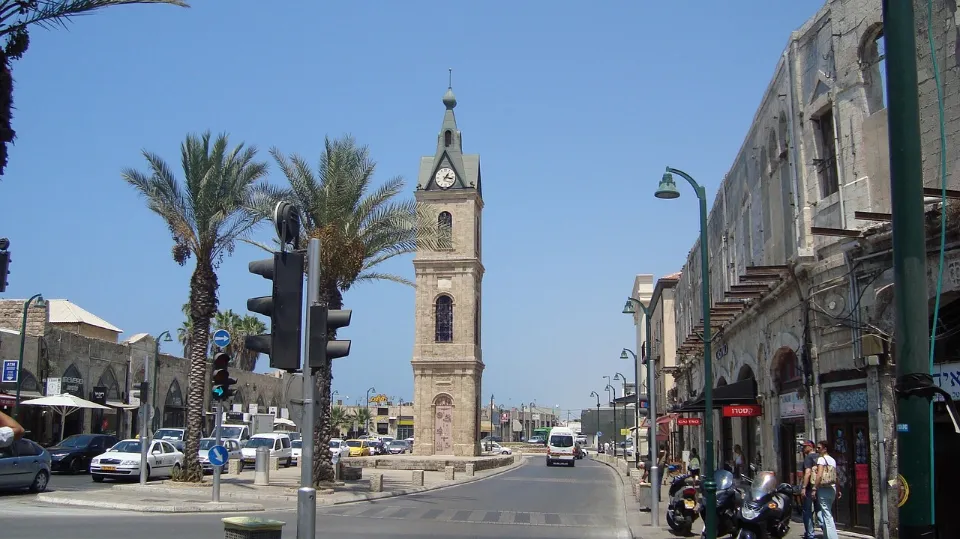
Is Tel Aviv Safe to Travel for Families?
Despite its reputation as a party city, Tel Aviv is a great destination for families during the day thanks to its abundance of museums, parks, cafes, and markets.
The city is home to many young families, which has contributed to its current reputation as a family-friendly destination. In fact, the city’s ethos largely derives from the importance played by the Hebrew word mischpacha – family, including distant relatives.
But this wasn’t always the case.
A few years ago, students and retirees made up the majority of Tel Aviv’s population. The city is now much more livable and enjoyable for families as a result of changes for the better, especially investments in green spaces.
Today Tel Aviv is a green city: there are parks galore. The largest one is Park HaYarkon, which is located on the Yarkon River’s banks and has a large number of playgrounds, a petting zoo, and rolling grassy areas. If your children are active, this is a great place to head straight for.
The Old Port is also good for kids as this historic area has sandpits and fountains for little ones. There is also the roomy Independence Park, for the ideal picnic spot overlooking the sea (plus playgrounds).
Beaches are a major draw for the city, and Tel Aviv has 14 kilometers of sandy beaches. You can unwind here while watching your kids splash around in the sand and the Mediterranean Sea.
Because lifeguards are present at every beach in the city and the current is not particularly strong close to shore, there is not much cause for concern regarding beach safety. All ages can enjoy swimming in this water.
There are, however, occasional “Black Flag” days when it is forbidden to swim. This frequently occurs following a storm.
Some of the best beaches in the city for families include Gordon Beach, which has a swimming pool as well as kiddie and baby pools, and Metzitzim Beach, which has both a beach bar and a playground right on the water.
Beach days should be carefully planned, though, as the midday sun is not recommended because it can get very hot during the summer. It is advised to go the beach either in the morning, or later in the afternoon; make sure to use sunscreen, wear T-shirts and sunhats, too.
There are many museums in Tel Aviv that offer educational activities, including Beit Hatfutsot—the Museum of the Jewish People—and the Steinhardt Natural History Museum, which has more than a million objects in its collection. There is also the Tel Aviv Museum of Art, which features fantastical sculptures and vibrant paintings that will capture children’s imaginations.
With children in tow, Tel Aviv is relatively small and simple to navigate. Pushchairs can be used on the well-maintained pavements, and even the inner-city bus can accommodate them. In actuality, kids under 5 ride for free on public transportation.
When it comes to food, there is not much to worry about. Family-friendly establishments typically have children’s menus and are accustomed to serving them; it is not uncommon to see families dining out late into the evening with their kids.
It is best not to visit Tel Aviv with young children in July and August, which is when the country sees its highest humidity and temperatures. Spring time and September – both the “shoulders season” – are good times of year to visit, with pleasant temperatures and plenty of sun.
Is It Safe to Drive in Tel Aviv?
You don’t need to drive yourself around the city to get around. If you do decide to self-drive, you should be aware that it will take a lot of patience.
Though you don’t need to drive yourself or rent a car, self-driving can be a good option if you want to travel further afield. Generally speaking, the highways are up to date and well-maintained. It is simple to navigate because the signs are in Hebrew, Arabic, and English.
Israel does not have a high rate of road traffic deaths, which suggests that it is not particularly dangerous, despite the fact that accidents caused by erratic driving occur frequently.
However, Tel Aviv drivers don’t have the best reputation; at times, it seems as though the traffic laws are more suggestions for people to follow than actual regulations. There will be a lot of honking, some lights flashing in your direction, and a few crazy U-turns to be aware of. At all times, you must remain vigilant and assertive.
However, there are speed cameras, and exceeding the speed limit is frequently fined.
The anxiety of driving in Tel Aviv will be greatly reduced by a satnav or GPS.
The fact that it is so difficult to find a parking spot, especially in downtown Tel Aviv, adds another headache to the parking situation. There are many complicated rules and regulations, such as the fact that cars can only park along blue-and-white kerbs; parking along red-and-white kerbs is prohibited and will result in your vehicle being towed.
Privately owned parking lots can be found all over the city, but larger public parking lots can be found south of Jaffa Port and near the Old Railway Station; Tel Aviv’s largest parking lot is at Reading Terminal, close to Park HaYarkon, and it has good bus connections into the heart of the city.
The signs that go with the parking machines aren’t always in English, and they can be difficult to use.
Shabbat (Friday evening and Saturday) can make parking more convenient because many city parking lots are open and many residents go on day trips.
To make things simpler, you can download the Pango app, which allows you to pay for parking through the app.
The experience of parking, however, is not generally positive.
Overall, driving is safe in Tel Aviv, but it is not really worthwhile. However, if driving is your thing, there isn’t much that can stop you. However, we advise that you have some experience driving abroad and are a confident driver.
Is Uber Safe in Tel Aviv?
Uber is risk-free in Tel Aviv.
Israeli ride-hailing app Gett operates similarly to Uber in that it is only for taxis.
The benefit of both Uber and Gett is that the price is what you pay through the app using your bank card, so you won’t be taken advantage of by any taxi drivers. Additionally, a legitimate taxi is guaranteed for you. Other benefits include the ability to track your ride and look up driver reviews, among other things.
Are Taxis Safe in Tel Aviv?
The majority of the time, Tel Aviv’s taxis are secure, but there is always a chance of being taken advantage of. There are a few things you need to be aware of when using taxis in Tel Aviv.
In Tel Aviv, taxis are easy to find because they are present almost everywhere. The Israel Transportation Ministry regulates licensed taxis, which are typically white and made by Mercedes, Skoda, or Kia.
Taxis in Tel Aviv will be painted with the word “TAXI” or “MUNIT” on either side of the cab, and will have a yellow light-up sign on the roof. But be careful; unlike other countries’ systems, the taxi sign is always lit and, confusingly, doesn’t say whether or not it’s available.
The green light at the bottom of the main yellow light is the thing to watch for; if it’s off, someone is on board. However, this isn’t always the case, so the best thing to do is just to try to wave down any taxi, regardless of lights.
A meter is required for taxi drivers by law. Get out of the taxi and call another one if the driver tries to con you by claiming the meter is broken, that it’s cheaper not to use the meter, or something similar. Tourists may be the target of these shenanigans, and your driver will probably offer a flat rate, which may be significantly higher than the rate the meter would calculate.
It is acceptable to sit in the front with the driver if you have found a taxi and enter it; this is not unusual. Friendly taxi drivers will talk to you about their city and what they’re up to.
Please be aware that tipping your driver is not required nor customary.
You can file a complaint if the driver is smoking, is picking up additional passengers, or if you believe you have been defrauded. Either ask for a receipt at the end of your taxi ride, or write down the taxi’s number, the driver’s name, and the license plate number, and call the Transportation Ministry Office.
You should be aware that there are two different tariff systems; the lower one is in effect between 5:30 and 6:30 am. and 9 p.m.; the higher one – 25% higher than the lower one – runs between 9 p.m. and 5:30 p.m., as well as on Shabbat (Friday night and Saturday) and Jewish holidays.
There are also charges for specific inter-city routes, for which you can request the designated price.
By using one of the aforementioned apps—Gett or Uber—or by asking your lodging to make a call for you, everything about taxis in Tel Aviv can be made simpler.
Is Public Transportation in Tel Aviv Safe?
Buses are the main mode of public transportation in Tel Aviv because there isn’t a metro there yet. These can be a little bit confusing for visitors to the city to get to grips with. But once you understand how they work, they are generally secure and simple.
The Moovit app shows you realtime updates of bus routes if you do get confused with it all.
Dan operates the buses in Tel Aviv, but there are a number of other smaller businesses that run routes throughout the city.
You can catch a bus in Tel Aviv from 5 a.m. to 12 a.m., which means party animals can ride them home in the early morning after a night of dancing.
The cost of taking the bus is about NIS 5 for a one-way ticket, which is paid when boarding the vehicle.
It is a good idea, however, to consider purchasing a one day pass or hofshi yomi – for NIS 13.50, this gets you unlimited travel around the city and its suburbs. The weekly hofshi shavoui (NIS 64) is another option.
You could also purchase a Personal Rav Kav if you plan to stay in the city for a few weeks or months. These top-up travel cards can be picked up from a Dan information centre; note that getting one involves paperwork, and requires a photo and a passport.
If you get one from a bus driver – an Anonymous Rav Kav – however, none of that is needed; just ask the driver as you get on.
The Central Bus Station, Arlozorov Bus Terminal, and Carmelit Bus Terminal are the three largest bus terminals in Tel Aviv. Be cautious late at night and early in the morning, especially in the area of the Central Bus Station. Transport hubs aren’t always the most attractive locations, as is the case in many cities. Avoid looking lost by keeping your belongings close at hand.
Israel Railways is in charge of operating the trains in Israel. They provide a convenient way to travel the country because they are clean, air-conditioned, modern, and frequently scheduled.
On a trip to Tel Aviv, a train may be the first public transport you encounter. There is a train line that travels to and from the city via Ben Gurion Airport, and there are other train lines that link the city’s center to both its nearby suburbs and other cities.
The best way to get around Tel Aviv right now isn’t by train. The opening of the Tel Aviv Light Rail, which has experienced numerous delays, is imminent. Also in the works and scheduled to open in 2021 is a three-line metro system for Tel Aviv.
But if you want to get around the city, taking the train is commonplace in Israel and can be a convenient way to get from one place to another. On the east side of the city, there are four major train stations that primarily cater to commuters; the main station is Tel Aviv Center (or Tel Aviv Savidor Mercaz), which is conveniently located next to the Arlosorov Bus Terminal.
You can take a train from Tel Aviv Center to Haifa, Israel’s third-largest city (which does have a metro). Although a high-speed service between Tel Aviv and Jerusalem is under construction, taking the bus is currently faster.
As an alternative to the bus, there is a city-wide bike hire scheme, dubbed Tel-O-Fun. With an impressive 120 kilometers of bike lanes and numerous pick-up and drop-off locations throughout the city, these vibrant green bicycles are actually one of the quickest and simplest ways to get around. A daily travel card for the bikes is only about NIS 17 in total.
With this, you can navigate Chen Boulevard, Ben-Gurion Boulevard, and Rothschild Boulevard without encountering traffic.
Additionally, you can ride a bicycle along the 10-kilometer-long coastal promenade, and a tour of the enormous HaYarkon Park by bicycle is incredible.
On a safety note, if you decide to cycle through the city, be sure to stay on the cycle paths. If you cycle on a sidewalk, you’ll be fined. Additionally, driving can be hazardous.
Although Tel Aviv doesn’t yet have a metro or even a light rail system, they will in the near future. Before that occurs, taking the bus is a relatively safe way to get around the city; just be careful around transportation hubs and keep an eye on your belongings. Enjoy!
Conclusion: is Israel Safe to Visit?
Briefly, the majority of Israel is safe for tourists to travel through. Tourists strongly reconsider traveling to Gaza, the West Bank, and the border between the Sinai and Israel, as these areas are known for high rates of terrorism and civil unrest.
FAQ About Staying Safe in Tel Aviv
Here are some quick answers to common questions about safety in Tel Aviv.
Is It Safe to Walk in Tel Aviv at Night?
Even the spooky-looking areas of Tel Aviv are safer than most comparable places in the world in the evenings. Nevertheless, some areas of South Tel Aviv (particularly the area around the main bus station) can be unsettling at night, and it’s one of the very few places in Tel Aviv where muggings occasionally occur.
Is Tel Aviv Safe for British Tourists?
Particularly when compared to many Western nations and cities, personal safety is always extraordinarily high and crime is very low in Israel. Israel is actually safer to visit than the UK, USA, or the majority of other western nations when it comes to crime.
Is Tel Aviv Safe for Girls?
Safety. First and foremost, Israel is typically considered very safe, especially for travelers (including solo female travelers). In Israel, daily life is typically very secure, and the major tourist attractions and sites always have strong security.


